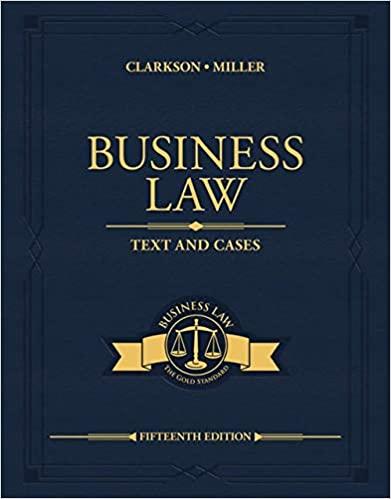Matrixx Initiatives, Inc., makes and sells over-the-counter pharmaceutical products. Its core brand is Zicam, which accounts for
Question:
Matrixx Initiatives, Inc., makes and sells over-the-counter pharmaceutical products. Its core brand is Zicam, which accounts for 70 percent of its sales. Matrixx received reports that some consumers had lost their sense of smell (a condition called anosmia) after using Zicam. Four product liability suits were filed against Matrixx, seeking damages for anosmia. In public statements relating to revenues and product safety, however, Matrixx did not reveal this information. James Siracusano and other Matrixx investors filed a suit in a federal district court against the company and its executives under Section 10(b) of the Securities Exchange Act of 1934 and SEC Rule 10b-5, claiming that the statements were misleading because they did not disclose information regarding the product liability suits. Matrixx argued that to be material, information must consist of a statistically significant number of adverse events that require disclosure. Because Siracusano’s claim did not allege that Matrixx knew of a statistically significant number of adverse events, the company contended that the claim should be dismissed. What is the standard for materiality in this context? Should Siracusano’s claim be dismissed? Explain. [Matrixx Initiatives, Inc. v. Siracusano, 563 U.S. 27, 131 S.Ct. 1309, 179 L.Ed.2d 398 (2011)] (See The Securities Exchange Act of 1934.)
Step by Step Answer:

Business Law Text And Cases
ISBN: 9780357129630
15th Edition
Authors: Kenneth W. Clarkson, Roger LeRoy Miller





